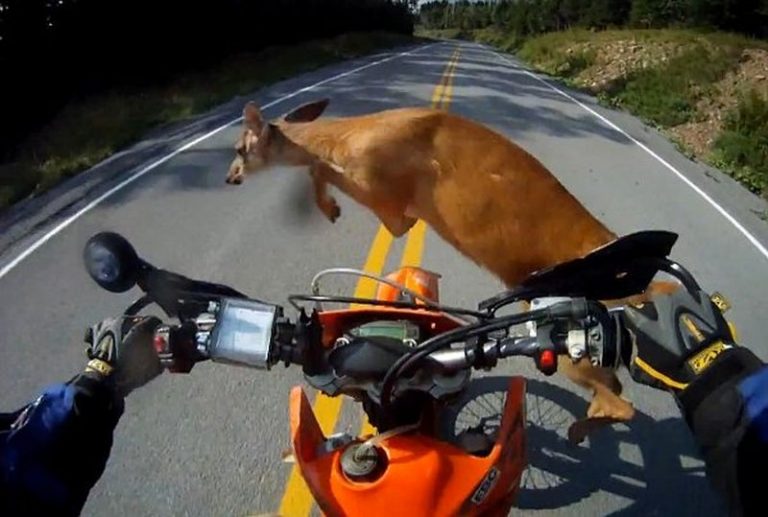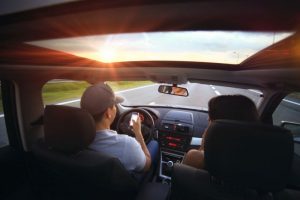No matter how big or small, being involved in an accident on your motorcycle can not only have a serious impact on your physical health, but can really shake you up emotionally. Even if you have a near miss, the adrenaline makes it feel like your heart has jumped into your mouth and your stomach feels like it’s about to drop out your butt.
So, if you have an accident on two-wheels, how do you regain your confidence and get back out on the road? A user on the ABR Forum this week has asked just that. Here’s his story…
BlissRider rode to the petrol station the other night, on his Honda Nighthawk, after an argument with his girlfriend. He admits as he left the petrol station, he was still too full of adrenaline and bad attitude after the argument and was riding too fast. He crested a hill and saw two deer running across the road in the moonlight. “I hit the brakes, hoping to make it between them,” he said. “When the first deer stopped in front of me, I had just enough time to hit the brakes and brace for the impact.”
>>> How to deal with concussion after a motorcycle accident.
BlissRider says he remembers seeing the front wheel hit the deer and seeing it go down. He vaguely remembers being thrown off the bike, but his memory blanks out until he was stood in the road looking at his motorcycle on the pavement. Fortunately, he came out of the accident unscathed. A good helmet and riding gear meant he got away with only a few stitches in his elbow (and a heck of a lot of bruises).
However, as physically unscathed as he was, BlissRider has said his pride and confidence are a mess, not to mention his motorcycle. “I just keep replaying what happened in my mind,” he explains. “I could have braked harder, I could have swerved and I could have been driving slower,” he continues. “It sucks because I love riding and have done for the last 16 years. But, I keep feeling like I shouldn’t even be on a bike with such a lousy reaction time and doing multiple things I should have known better than to do.”
BlissRider created the thread to seek advice from other ABR Forum users as he has had the chance to bag himself a really nice KLR650, but, he is still pretty shaken from the accident. Here are some of the replies….
Tempesc: I’ve not hit a deer myself but had this mishap last year, the afternoon before I was due to set off solo across Africa:
I too failed to brake or swerve, it just happened too fast. I was shaken up for a bit, but I picked myself up, sourced another bike and left a week later. I ended up having a great time. My learning from this was:
- Whatever worse outcome might have happened, it didn’t. You just have to be grateful and let it go.
- But, use the sense of vulnerability to make you a better rider. The experience actually helped me on my trip, it was a wake-up call that made me more alert in how I rode for the rest of the trip.
- The first day back riding was tough, but you soon get back to a more balanced place.
PHILinFRANCE: Tough mate, but you have got to get back on the bike. It’s a one in a million accident. Living in rural France myself, I count how many deer and boar have luckily passed just in front of me. Best of luck mate.
>>> Study reveals how effective antilock braking systems are in reducing motorcycle accidents.
Alun: From where I’m sitting, it’s totally natural for confidence to take a hit when you have a smash and a brush with mortality. It’s also good practice to run through events an learn from any mistakes you may have made. But, like most activities, it’s impossible to plan for all eventualities. You just need to get back to feeling comfortable with the level of risk versus the reward and move on. If riding is a big part of your life and you wish to continue, then in my experience, time back in the saddle is the best and quickest way to regain that smile on your face.
If you have any advice for BlissRider or have experienced something similar you’d like to share with him, then you can reply to the conversation in the thread on the ABR Forum.



